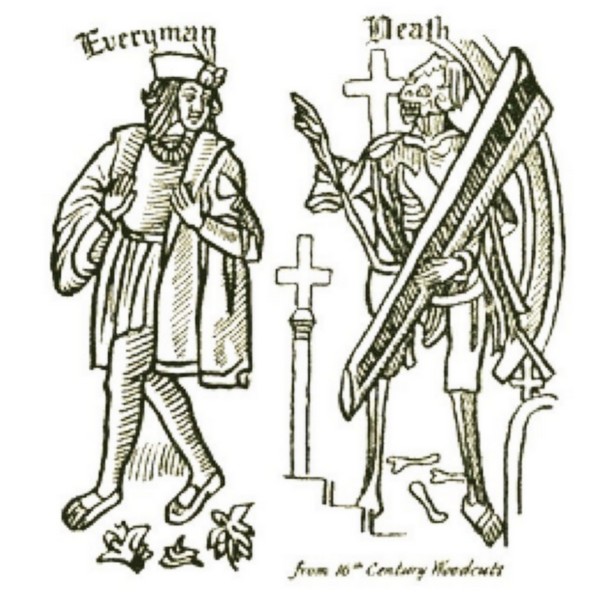
The third post about the Schubertíada Vilabertran will be focused on a single recital, that of Matthias Goerne and Alexander Schmalcz, on Saturday, August 24. The reason is very simple: we only listened to two of the programmed songs, these two songs by Mahler:
And since long time ago, I jotted down in my notebook one of the song cycles that Goerne is singing, Sechs Monologe aus "Jedermann", I thought this could be a good opportunity to talk briefly about it.
Jedermann. Ein Spiel vom Sterben des Reichen Mannen is a play written in 1911 by Hugo von Hofmannsthal, known for the opera lovers as the librettist of some of Richard Strauss's operas (for example, Elektra or Der Rosenkavalier). As the title suggests, the play is about the death of a rich man. One day, the Death visits unexpectedly the man, still young, to announce him that his time has come; he has just an hour to put his house in order. The friends that are enjoying a party with him fly away, scared; even his lover abandons him, and Jedermann (Everyman) remains alone and terrified.
The play is performed at Salzburg Festival every year from 1925 (both Hofmannsthal and the director Max Reinhardt were founders of the festival); maybe you attended the festival and saw the Cathedral Square prepared for the performances. This tradition was interrupted in 1938, due to the annexation of Austria into Germany; once World War II ended, the performances were resumed. It was precisely during the war, in 1943, that baritone Max Christmann commissioned Frank Martin a song cycle; While looking for the right texts, he thought of Jedermann. In fact, he first thought about composing an opera, but he finally chose six monologues of Jedermann to write the cycle that the singer had commissioned. The original play has many characters, but Martin's choice has the virtue of telling with only a character and in just twenty minutes the evolution of Jedermann's feelings since Death barges into the feast. The man goes through what we know as the five stages of grief: from denial, when he intends to flee with his treasures, to acceptance: at the end, he recognizes his sins and entrusts his soul to God.
I hope these few lines are useful as an introduction to an impressive work; I'm sharing the fifth monologue, Ja! Ich glaub: solches hat er vollbracht [Yes, I believe that Christ has done this], performed by another of the duos we're listening in Vilabertran: Andrè Schuen and Daniel Heide.
Ja! Ich glaub: solches hat er vollbracht,
Des Vaters Zorn zunicht gemacht,
Der Menschheit ewig Heil erworben
Und ist dafür am Kreuz verstorben.
Doch weiß ich, solches kommt zugut,
Nur dem, der heilig ist und gut:
Durch gute Werk und Frommheit eben
Erkauft er sich ein ewig Leben.
Da sieh, so steht um meine Werk:
Von Sünden hab ich einen Berg
So überschwer auf mich geladen,
Daß mich Gott gar nit kann begnaden,
Als er der Höchstgerechte ist.













Comments powered by CComment